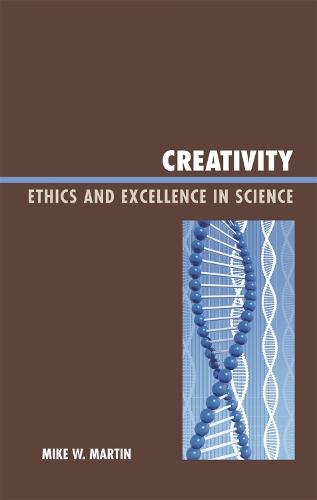Overview
Creativity explores the moral dimensions of creativity in science in a systematic and comprehensive way. A work of applied philosophy, professional ethics, and philosophy of science, the book argues that scientific creativity often constitutes moral creativity—the production of new and morally variable outcomes. At the same time, creative ambitions have a dark side that can lead to professional misconduct and harmful effects on society and the environment. In this work, creativity is generally defined as the development of new and valuable outcomes such as significant truths, illuminating explanations, or useful technological products. Virtue and accompanying ideals are emphasized as a moral framework. Intellectual virtues, such as love of truth, intellectual honesty, and intellectual courage, are themselves moral virtues. Further moral topics concerning scientific creativity are explored: serendipity and its connection with moral luck, the paradoxes of moral motivation, scientific misconduct arising from unbalanced creative ambitions, forbidden knowledge, creative teaching and leadership in science, and the role of scientific creativity in good lives.
Full Product Details
Author: Mike W. Martin
Publisher: Bloomsbury Publishing Plc
Imprint: Lexington Books
Dimensions:
Width: 15.40cm
, Height: 1.20cm
, Length: 23.20cm
Weight: 0.231kg
ISBN: 9780739120545
ISBN 10: 0739120549
Pages: 162
Publication Date: 15 September 2008
Audience:
General/trade
,
General
Format: Paperback
Publisher's Status: Active
Availability: In Print

This item will be ordered in for you from one of our suppliers. Upon receipt, we will promptly dispatch it out to you. For in store availability, please contact us.
Reviews
Creativity is a virtue that the norms of science have been shaped to harness. Like all institutions, science succeeds only imperfectly in channeling creativity into fruitful advance and application. Martin's book is the first to address the way in which creative scientific talents interact with the professional norms of applied and pure research to produce its more praiseworthy scientists and their achievements, as well as those whose creative efforts circumvent and fall afoul of science's rules of conduct. This is a book that makes the topic of professional ethics more than just an obligatory subject. It makes it an interesting one.--Alex Rosenberg
Creativity is a virtue that the norms of science have been shaped to harness. Like all institutions, science succeeds only imperfectly in channeling creativity into fruitful advance and application. Martin's book is the first to address the way in which creative scientific talents interact with the professional norms of applied and pure research to produce its more praiseworthy scientists and their achievements, as well as those whose creative efforts circumvent and fall afoul of science's rules of conduct. This is a book that makes the topic of professional ethics more than just an obligatory subject. It makes it an interesting one. -- Alex Rosenberg
Author Information
Mike W. Martin is professor of philosophy at Chapman University. He is the author of twelve books, including Ethics in Engineering (McGraw-Hill) and Meaningful Work: Rethinking Professional Ethics (Oxford).



